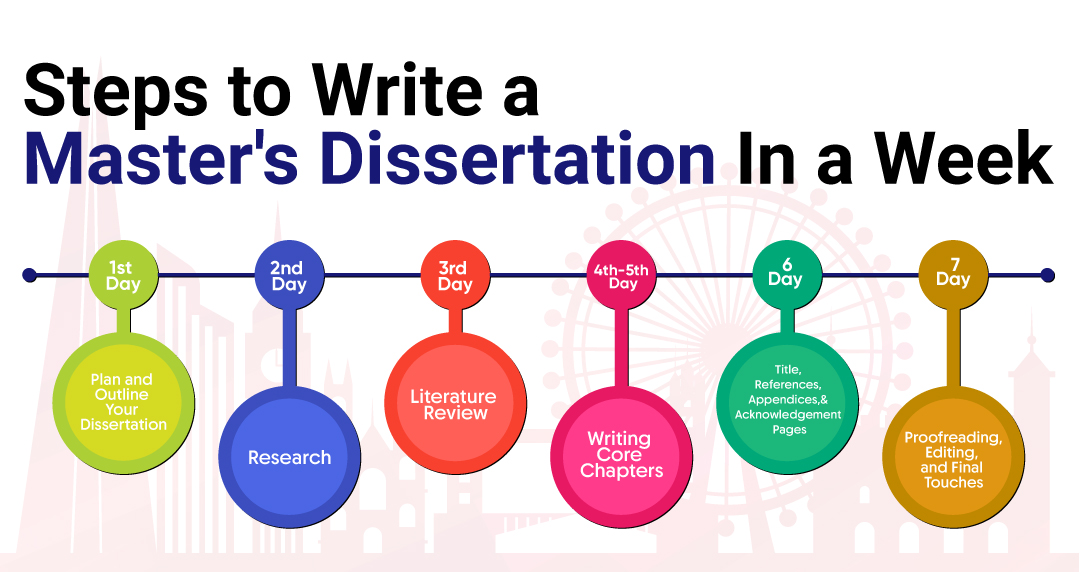Time Management Strategies for Completing Your Dissertation on Time
Time Management Strategies for Completing Your Dissertation on Time

Understanding the Importance of Time Management in Dissertation Writing
Writing a dissertation is a complex and time-consuming task that requires careful planning and execution. Effective time management is crucial to ensure the research is completed on schedule while maintaining quality. Without proper planning, students may experience stress, missed deadlines, and lower academic performance. This guide provides practical strategies to help students efficiently manage their time and successfully complete their dissertations.
Setting Realistic Goals and Milestones
One of the first steps in effective time management is setting achievable goals. Breaking down the dissertation into manageable milestones makes the writing process more structured and less overwhelming. Consider the following steps:
- Define clear objectives – Establish the key research goals and expected outcomes.
- Break down tasks – Divide the dissertation into sections such as introduction, literature review, methodology, analysis, and conclusion.
- Set deadlines for each section – Assign specific timeframes for completing each part of the dissertation.
- Use project management tools – Platforms like Trello or Microsoft Planner can help track progress.
Creating a Dissertation Timeline
A dissertation timeline provides a clear roadmap for research and writing. Follow these steps to create an effective schedule:
- Estimate the total time required – Consider university deadlines and allocate sufficient time for each phase.
- Allocate time for research – Initial research should be thorough to build a strong foundation.
- Plan for writing and revisions – Leave ample time for drafting, editing, and proofreading.
- Account for unforeseen delays – Research challenges, data collection issues, or writer’s block may require adjustments to the schedule.
Prioritizing Tasks and Avoiding Procrastination
Procrastination can significantly hinder dissertation progress. To stay focused, consider these strategies:
- Use the Eisenhower Matrix – Categorize tasks based on urgency and importance.
- Apply the Pomodoro Technique – Work in focused 25-minute sessions followed by short breaks.
- Avoid distractions – Create a dedicated workspace and limit social media usage.
- Stay motivated – Reward yourself after completing significant milestones.
Managing Research Efficiently
Conducting thorough research is essential for a high-quality dissertation. To optimize research time:
- Use academic databases – Access credible sources such as Google Scholar, PubMed, or JSTOR.
- Organize sources systematically – Use citation management tools like Zotero or EndNote.
- Take detailed notes – Summarize key findings and categorize information for easy reference.
- Verify sources – Ensure that all references are relevant and credible.
Writing with Consistency and Discipline
Developing a disciplined writing habit is crucial for dissertation completion. Follow these writing strategies:
- Write daily – Set aside dedicated time each day to work on the dissertation.
- Start with an outline – Structuring content before writing improves clarity.
- Follow a logical flow – Ensure smooth transitions between sections.
- Edit progressively – Reviewing and refining content regularly prevents last-minute stress.
Seeking Academic Guidance and Feedback
Regular feedback from advisors and peers enhances dissertation quality. Consider these steps:
- Schedule regular meetings – Discuss progress and receive constructive feedback.
- Join academic groups – Engaging with research communities can provide new insights.
- Incorporate suggestions – Address feedback to improve the dissertation.
- Clarify doubts early – Avoid delays by resolving academic queries promptly.
Balancing Dissertation Work with Other Responsibilities
Many students juggle dissertation writing with coursework, jobs, or personal commitments. To maintain balance:
- Create a structured routine – Allocate specific time slots for dissertation work.
- Set boundaries – Communicate with family and employers about dissertation priorities.
- Practice self-care – Ensure adequate sleep, exercise, and relaxation to maintain productivity.
- Use digital tools – Apps like Notion and Evernote can streamline organization and scheduling.
Overcoming Common Time Management Challenges
Students often face various obstacles during dissertation writing. Here’s how to overcome them:
- Writer’s block – Start with simpler sections to build momentum.
- Data collection delays – Plan alternative research strategies in case of setbacks.
- Perfectionism – Focus on progress rather than flawless initial drafts.
- Last-minute stress – Follow the timeline to avoid rushed work.
Proofreading, Editing, and Finalizing the Dissertation
Before submission, meticulous editing and proofreading are necessary to ensure quality. Key steps include:
- Check for consistency – Ensure logical flow and coherence between sections.
- Eliminate grammatical errors – Use grammar-checking tools to refine writing.
- Verify citations – Cross-check all references for accuracy.
- Conduct a plagiarism check – Maintain originality with plagiarism detection software.
Seeking Additional Academic Support
For students needing extra assistance, expert guidance can help streamline the dissertation process. Academic support services such as Dissertation help in UK offer structured strategies to enhance research quality.
Ensuring a Smooth Submission Process
Before submitting the dissertation, ensure:
- Compliance with formatting guidelines.
- Inclusion of necessary appendices and supplementary materials.
- Final supervisor approval.
- Completion of plagiarism and quality checks.
A well-organized dissertation not only demonstrates subject expertise but also enhances academic credibility. If additional academic assistance is needed, students can explore structured support options such as Do MY Assignment in UK to improve research outcomes.







